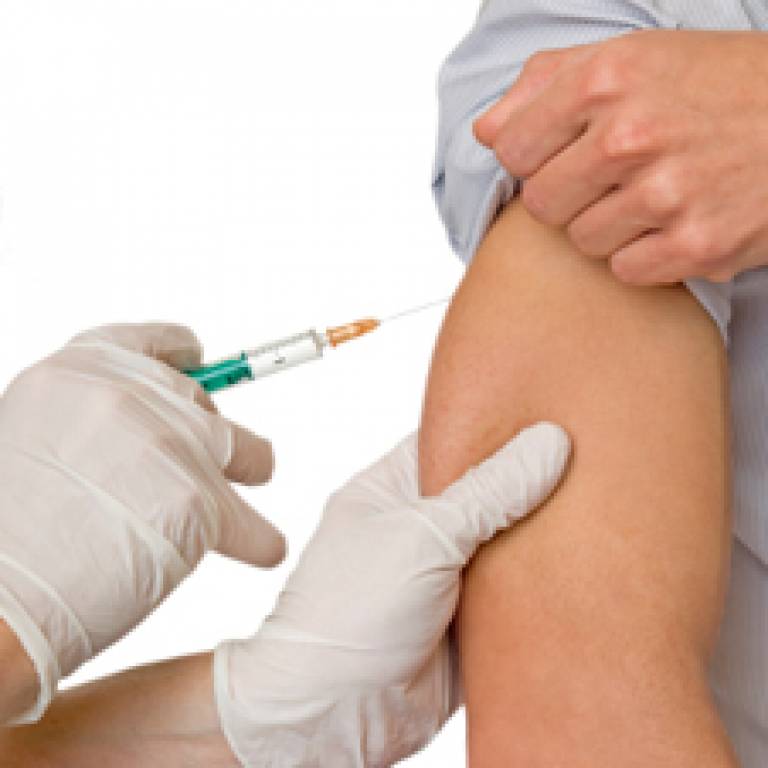£2.1m grant to investigate symptoms and spread of swine flu
11 November 2009
Link
 ucl.ac.uk/iph/research/cide" target="_self">UCL Centre for Infectious Disease Epidemiology
ucl.ac.uk/iph/research/cide" target="_self">UCL Centre for Infectious Disease Epidemiology
UCL's Dr Andrew Hayward is to lead a £2.1m project examining the symptoms, prevention and treatment of the 2009 H1N1 influenza strain, known as swine flu, as part of a major collaboration announced today.
Dr Hayward (UCL Centre for Infectious Disease Epidemiology) will be the principal investigator of a study co-funded by the Medical Research Council (MRC) and Wellcome Trust that will follow 10,000 individuals from 4,000 households to look at:
- duration and severity of symptoms
- access to care and treatment
- effectiveness of anti-virals
- uptake and effectiveness of the pandemic vaccine delivered through NHS
- population behaviour changes through the pandemic and during illness.
The study will enable researchers to provide monthly estimates of population infection rates in different subgroups through the pandemic, including estimates of the proportion of infections that do not exhibit symptoms.
The research will be an extension of the existing 'FluWatch' surveillance programme led by Dr Hayward, which is a community study of the behavioural and biological determinants of transmission of influenza running from 2006-2011 designed to inform seasonal and pandemic planning.
The new project will enable Dr Hayward's team to compare findings with those relating to the original FluWatch cohort. It will provide a unique opportunity to assess whether T cell responses to previous influenza strains offer protection against symptoms in those infected with the new H1N1 strain.
The research project is one of four announced today worth a total of £7.5 million by a collaboration by the MRC, Wellcome Trust, and Biotechnology and Biological Sciences Research Council together with the Department of Health and the Department for Environment, Food and Rural Affairs (Defra).
The studies will aim to understand:
- how the virus mutates and jumps the species barrier
- how it spreads through communities
- how the virus causes disease in both pigs and humans
- why it affects some individuals more than others and
- which interventions are most effective at preventing infection or treating the disease.
The results from each study will feed directly into wider policy analysis to ensure maximum access to and benefit from the data.
UCL context
The UCL Centre for Infectious Disease Epidemiology (CIDE) is based at the Hampstead Campus of UCL Medical School, and is part of the Research Department of Infection and Population Health.
Members of CIDE undertake research on the epidemiology, prevention and treatment of infections including sexually transmitted diseases, influenza, tuberculosis, antimicrobial resistance, hospital infection control, and other common problems, particularly among vulnerable populations in primary care.
The centre is a joint initiative with the Centre for Sexual Heath & HIV Research and is headed by Professor Anne Johnson. Non-Sexually Transmitted Disease work is led by Dr Andrew Hayward - Senior Lecturer in Infectious Disease Epidemiology.
Related news
Flu triggers heart attacks but vaccination may offer protection
 Close
Close

